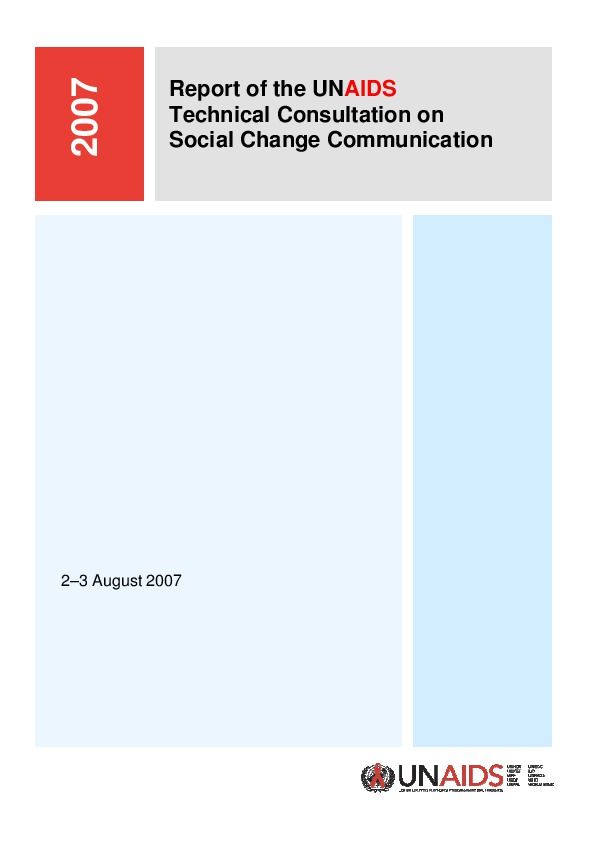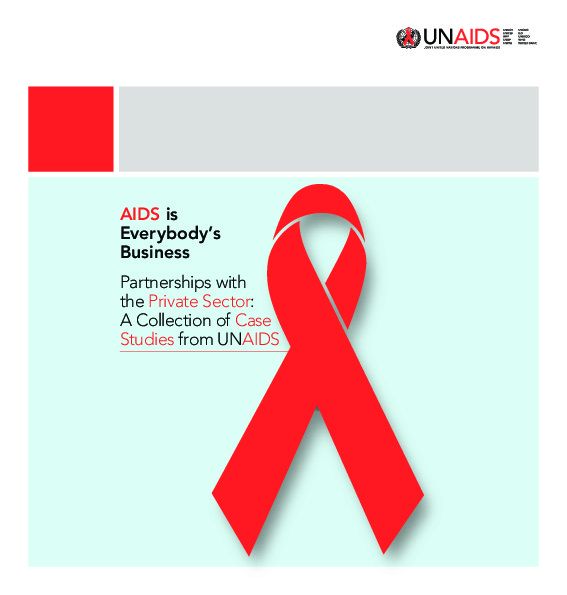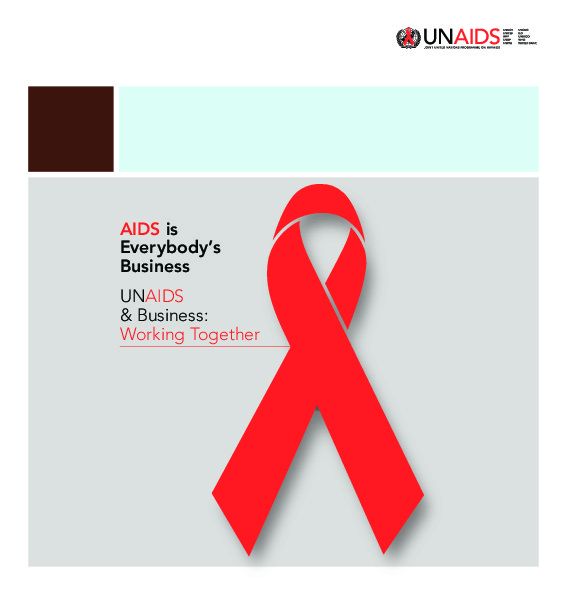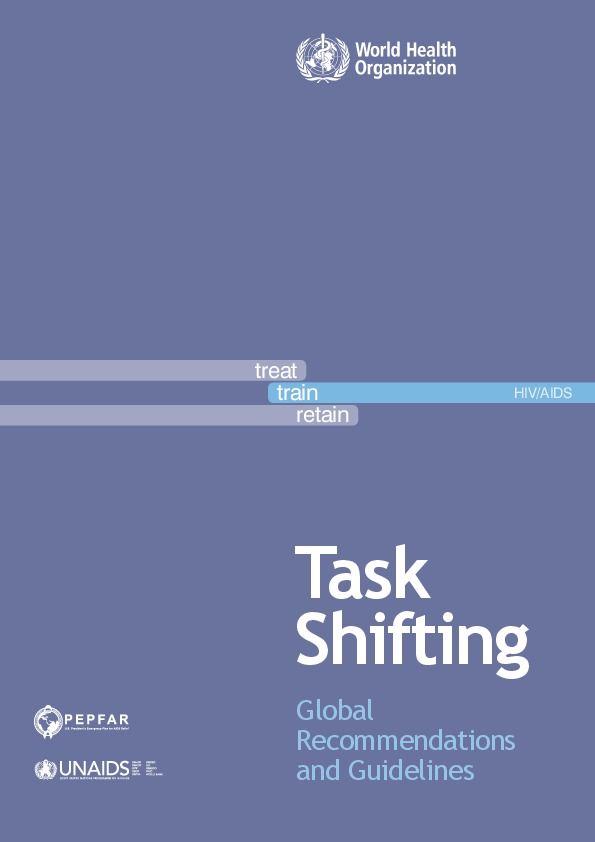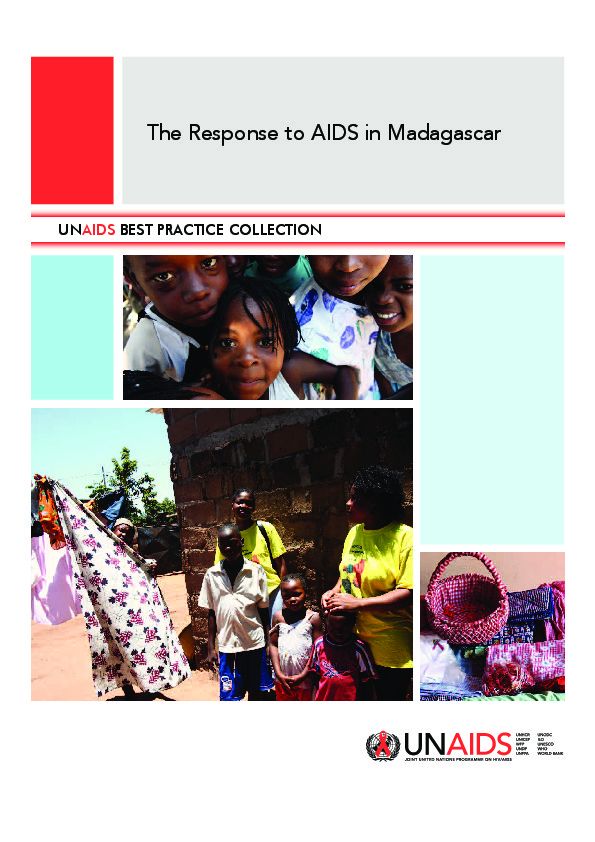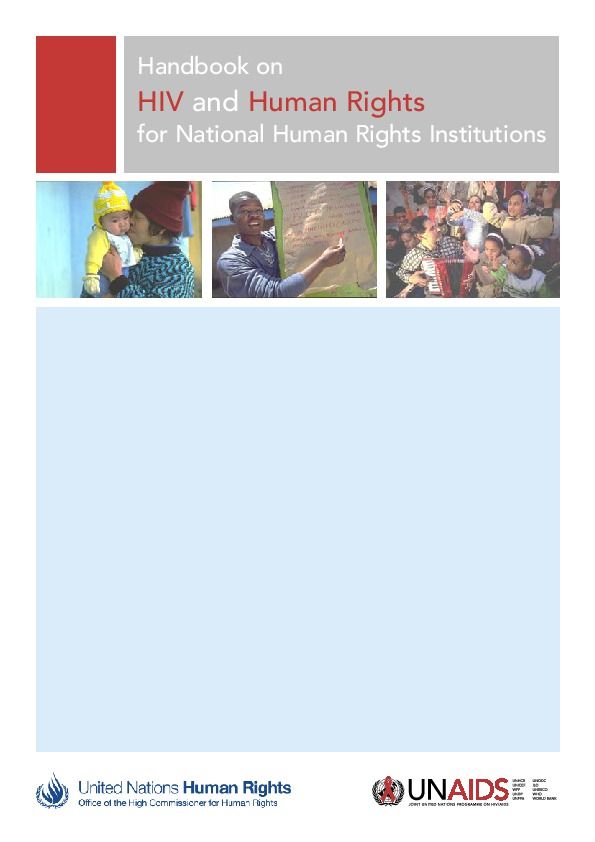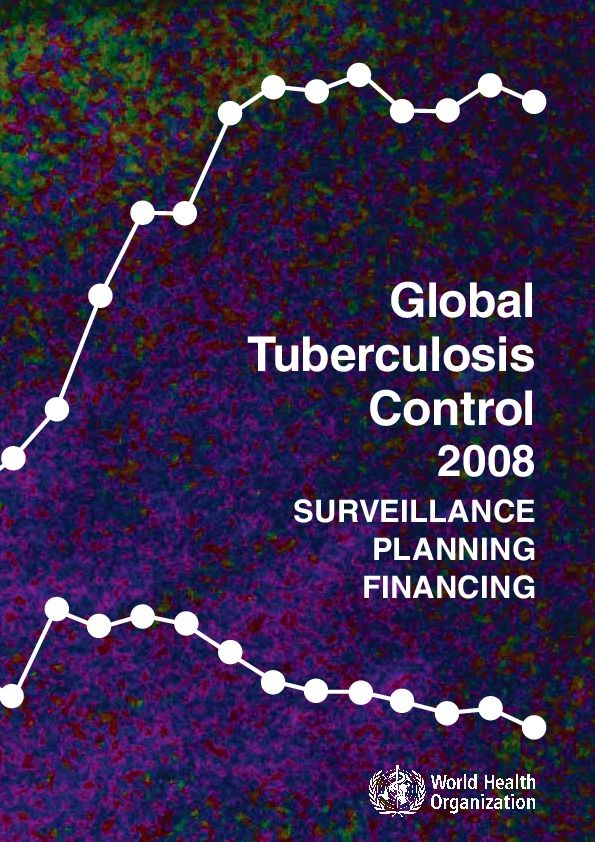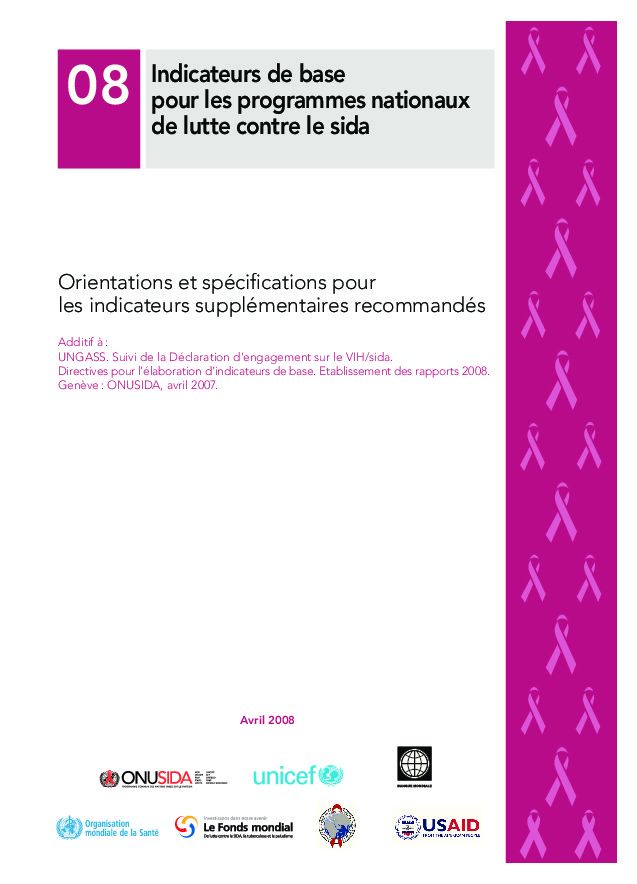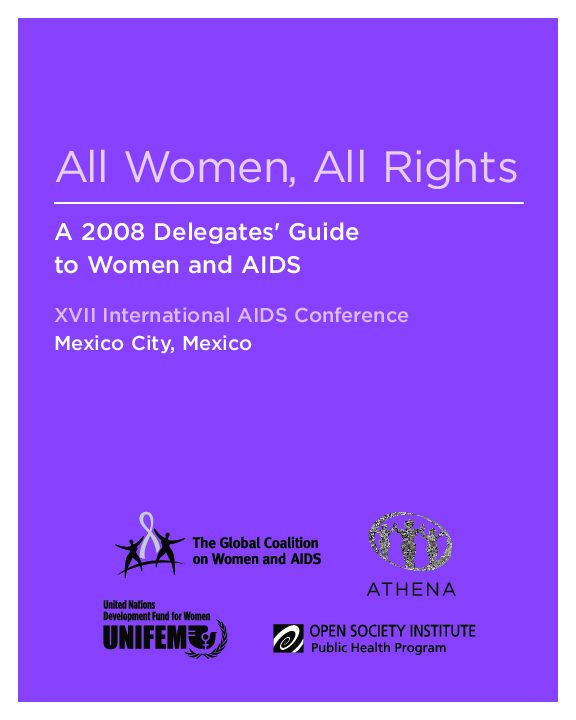Documents
Report of the UNAIDS Technical Consultation on Social Change Communication
17 décembre 2007
This document provides an overview of the discussions at the UNAIDS technical consultation on social change communication on 2–3 August 2007 at UNAIDS, Geneva. With 11,000 people being infected every day, HIV prevention is a global priority. UNAIDS Practical guidelines for intensifying HIV prevention urge countries to match prevention responses to their epidemics and stress the need to tackle the social drivers of the epidemic, such as gender inequality, HIV related stigma and discrimination and human rights abuses. The meeting explored the role of social change communication in achieving these ends through activities that are effective, measurable and can be taken to scale. A number of practical next steps and actions were identified and, building on the information generated at the meeting, guidance and technical support will be offered on social change communication for national AIDS programmes. A short paper on social change communication, describing the benefits and challenges of its application, will be developed. This will be followed by a high level briefing on social change communication and a technical update, which will explain what is meant by social change communication. It is hoped these documents will help UNAIDS country offices and national AIDS programme managers understand social change communication and enable them to promote it at the national level. They will be disseminated well before the 2008 UN General Assembly reporting.
Documents
AIDS is everybody's business: partnerships with the private sector
28 décembre 2007
Thisa is a collection of case studies from UNAIDS. This summary cannot fully capture the diverse range of partnerships that the UNAIDS secretariat and its cosponsors have initiated with the private sector. It is a first attempt to collect stories that highlight just a few of the ways in which we work with this important constituency. The talent, resources, experience and commitment of business must play a central role in designing, implementing and promoting effective responses to HIV. UNAIDS is committed to further engaging with the private sector as a long-term partner in the response to AIDS at global and local levels.
Documents
AIDS is everybody's business: UNAIDS & business - working together
28 décembre 2007
Being part of an effective response generates goodwill and demonstrates a company’s commitment to good corporate citizenship and to the well-being of its employees, customers and communities. There are many ways for businesses to contribute to the AIDS response. From the largest multinational corporations to the smallest enterprises, companies can choose the type and level of participation that suit their strengths. While models for partnership are practically limitless, possible activities include workplace programmes, advocacy, cash and in-kind donations.
Documents
Task Shifting - Global Recommendations and Guidelines
31 décembre 2007
‘Task shifting’ is the name given to a process of delegation whereby tasks are moved, where appropriate, to less specialized health workers. These recommendations and guidelines on task shifting, produced by WHO with the US President Emergency Plan For AIDS Relief (PEPFAR) and the Joint United Nations Programme on AIDS (UNAIDS), provide a framework that is informed by all we now know about the ways in which accessto health services can be extended to all people in a way that is effective and sustainable.
Documents
The Response to AIDS in Madagascar
06 février 2008
The response to AIDS in Madagascar has, for a long time, been compared to a helpless vessel drifting on a stormy sea. Since there was no common vision, no coherent communication strategy to accompany the measures, and no clear leadership—even less any
systematic follow-up—the response could be compared to a place where everybody was fighting their way to mark their territory or to a blank page on which everybody could, in indescribable cacophony, write and play their own music.
Documents
Handbook on HIV and Human Rights for National Human Rights Institutions
06 février 2008
Through the long struggle against HIV, it has become clear that human rights are central to effective national responses to HIV. Where human rights are not protected, people are more vulnerable to HIV infection. Where the human rights of HIV-positive people are not protected, they suffer stigma and discrimination, become ill, become unable to support themselves and their families, and if not provided treatment, they die.
Documents
Global Tuberculosis Control 2008
17 mars 2008
Annual report published by the World Health Organization (WHO) Global Tuberculosis Control 2008. This year's report shows that nearly 3/4 million people living with HIV fell ill with TB disease in 2006, confirming that TB is a major cause of illness and death in people living with HIV despite being mostly preventable and curable. Africa is yet again the most heavily affected continent, with 85% of the global burden of HIV-related TB.
Documents
Indicateurs de base pour les programmes nationaux de lutte contre le sida - Orientations et spécifications pour
les indicateurs supplémentaires recommandés
01 avril 2008
Le présent document a pour objet de présenter les 40 indicateurs de base nationaux qui fournissent les informations minimum nécessaires pour le suivi de l’épidémie de VIH et de la riposte au niveau national, et pour fournir des spécifications et des orientations détaillées pour les 15 indicateurs recommandés complétant les 25 indicateurs de l’UNGASS.
Documents
2008 Delegates Guide to Women and AIDS: All Women, All Rights
24 juillet 2008
The guide to the women’s events and sessions in the Mexico Conference includes all sessions that address women’s issues directly or are organized by organizations serving women’s interests. These sessions will draw together lessons and conclusions from diverse expereinces across the globe. They will shed new knowledge and solidify what we already know – women must be front and center in the AIDS response.
Documents
The road towards universal access
01 août 2008
Universal access is the global commitment to provide HIV prevention, treatment, care and support services to all those in need, based on national targets set by countries. The targets were developed through country consultations with civil society, people living with HIV and other national partners to assess their epidemics and obstacles to accessing HIV prevention, treatment and care services.

